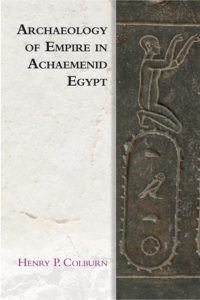If I were to give an award for the weirdest job ad, there would be a new contender as of today. I won’t name names, but I will quote the ad itself, which is for an ‘Assistant Professor with specialization in Mediterranean Identity and Race in Antiquity,’ and it will be obvious that the position is at a Canadian university:
The Ideal candidate will be someone, who can design and teach courses such as “Ancient Colonization and Diasporas,” “Warfare in the Ancient world” and “Slavery in the ancient Mediterranean,” which emphasize the strategies all cultures involved developed for mutual interaction, connection and inclusion. The successful candidate – Ideally a qualified scholar from an equity-seeking group – will be expected to initiate a high-quality research program on Greco-Roman interaction with the diverse indigenous populations of the Mediterranean, exploring parallels with the Canadian indigenous experience. This research, which is competitive for funding through Canada’s tri-council awards, will have independent facets, but also entail collaboration with colleagues in another field or fields, such as Art History, Gender Studies Geography, History, Languages Literatures and Cultures, Linguistics, Religious Studies and Sociology. By involving students, the research will further enhance the Department’s strong emphasis on experiential learning.
This ad is for a unicorn. If they fill this position with someone who actually meets all of these qualifications, I’ll eat my hat. Of course, they may already know of someone who meets these qualifications, but this is how rumors get started…

